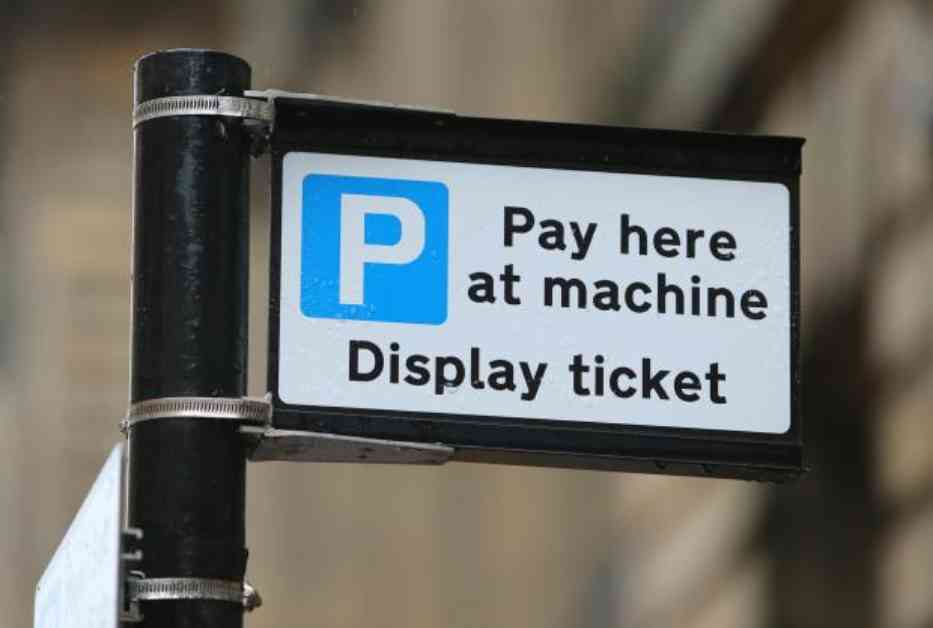Pressure is mounting on Renfrewshire Council amid claims a contentious parking strategy could cause “irreversible damage” in Paisley. The local authority has been urged to rethink changes that took effect in February as figures show a stark rise in the amount of money being pulled in through fines.
Controversial Parking Changes
Charges for on and off-street parking increased in the town centre, with one hour free for both, as the Free for Three initiative was axed, and penalty charge notices jumped from £60 to £100 – the fee halved if paid within a fortnight. The data, released following a freedom of information request, has since disclosed the level of funds the council has recovered through parking fines. The total stood at £32,367.05 in February (compared to £13,502.05 in February 2023), £51,189.05 in March (£15,750 in March 2023), £30,775.05 in April (£12,809 in April 2023) and £42,450 in May (£11,740 in May 2023).
Labour MSP Neil Bibby expressed concern over the significant increase in the amount of money the council has been pocketing in parking fines. He stated, “While appropriate action should be taken to tackle illegal parking, there are clearly questions to be answered on these eye-watering increases. It is little wonder these increases coincided with the council’s decision to reduce free parking in Paisley and hike up charges. Local motorists are being used as a cash cow both through paying more for parking and being caught out by the new parking rules.”
Impact on Local Economy
Local businesses rely on accessible parking to attract customers, and there are concerns that current parking charges are having a detrimental impact on trade. Paisley First campaigned against the loss of Free for Three, a scheme that allowed drivers to park in specific car parks for three hours at no charge, and is worried about the long-term repercussions of the changes. Elaine Templeton, chair of the business improvement district, stated, “We have already submitted evidence to Renfrewshire Council, which shows the devastating impact the loss of Free for Three and higher parking charges is having on local businesses. A dozen businesses in the town centre have either closed, relocated, or announced their intention to leave since these changes came into effect.”
Councillor Chris Gilmour, Labour group environment spokesperson, added, “This sharp increase in parking fines is a clear sign that the current approach is not working for the people of Renfrewshire. The decision to remove the three-hour free parking has placed an unnecessary financial burden on local residents and businesses at a time when they can least afford it.”
Council Response and Justification
However, SNP council leader Iain Nicolson defended the council’s actions, stating, “Fines were increased in line with our new car parking strategy and are only issued if a vehicle isn’t correctly parked or if you outstay your allotted time. The increase in the parking fine earlier this year will have a direct bearing on the higher amount currently being received in fines. The amount of free parking in Paisley was massively increased with free parking expanded from off-street car parks to on-street parking.”
Nicolson further explained, “This has been welcomed by local businesses who often found parking spaces blocked out all day and passing trade being lost due to a lack of spaces being available. This expanded free parking allows people to stop and nip into local shops without having to buy a parking ticket. Renfrewshire’s parking charges are in line with national standards and below that of other towns and cities. This council administration is very clear that the provision of well-managed parking is something that residents, businesses, and visitors want and expect.”
In conclusion, the impact of the Paisley parking charges on the local economy has sparked a heated debate between council officials, politicians, and business owners. While the council defends its actions as necessary for effective parking management, concerns remain about the financial burden on residents and the potential negative effects on local businesses. It remains to be seen whether the council will heed calls for a reconsideration of the parking policy to mitigate any irreversible damage to Paisley’s economy.















